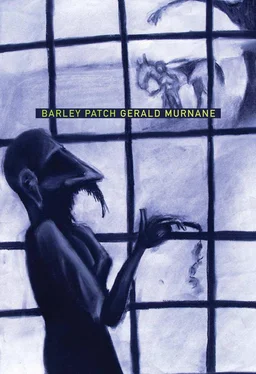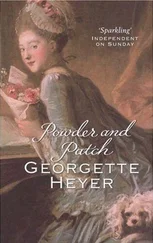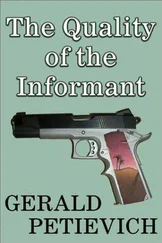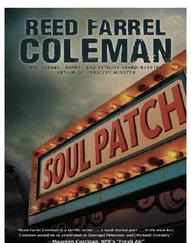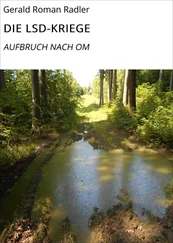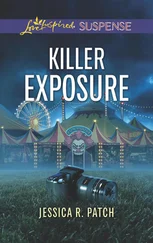Gerald Murnane - Barley Patch
Здесь есть возможность читать онлайн «Gerald Murnane - Barley Patch» весь текст электронной книги совершенно бесплатно (целиком полную версию без сокращений). В некоторых случаях можно слушать аудио, скачать через торрент в формате fb2 и присутствует краткое содержание. Год выпуска: 2011, Издательство: Dalkey Archive Press, Жанр: Современная проза, на английском языке. Описание произведения, (предисловие) а так же отзывы посетителей доступны на портале библиотеки ЛибКат.
- Название:Barley Patch
- Автор:
- Издательство:Dalkey Archive Press
- Жанр:
- Год:2011
- ISBN:нет данных
- Рейтинг книги:5 / 5. Голосов: 1
-
Избранное:Добавить в избранное
- Отзывы:
-
Ваша оценка:
- 100
- 1
- 2
- 3
- 4
- 5
Barley Patch: краткое содержание, описание и аннотация
Предлагаем к чтению аннотацию, описание, краткое содержание или предисловие (зависит от того, что написал сам автор книги «Barley Patch»). Если вы не нашли необходимую информацию о книге — напишите в комментариях, мы постараемся отыскать её.
Barley Patch — читать онлайн бесплатно полную книгу (весь текст) целиком
Ниже представлен текст книги, разбитый по страницам. Система сохранения места последней прочитанной страницы, позволяет с удобством читать онлайн бесплатно книгу «Barley Patch», без необходимости каждый раз заново искать на чём Вы остановились. Поставьте закладку, и сможете в любой момент перейти на страницу, на которой закончили чтение.
Интервал:
Закладка:
The reader should not suppose that I fail to recognise the workings of the imagination in other writers of fiction because I search out too eagerly and read too hastily passages referring to young female persons. I tried to recall just now the occasion when I read for the first time the passage of fiction that has affected me more than any other passage that I have read during sixty years of reading fiction. I seemed to recall that I was walking across a courtyard on my way towards the front door of a mansion. I had been invited to an afternoon party that was then taking place in the mansion. A motor-car just then arriving in the courtyard passed close by me, causing me to step suddenly backwards. My stepping thus caused me to find myself standing with one foot on each of two uneven paving-stones. What happened afterwards is reported in the relevant passage in the last volume of the work of fiction the English title of which is Remembrance of Things Past.
Leaving aside for the moment much of what has been written so far in these pages, have I never wished to be able to report, as it were, events that might have happened, as it were, at such a time and in such a place that I could never be supposed to have witnessed them?
I admit to having wished from time to time that my exerting some faculty previously unknown to me might enable me to recreate in vivid detail, as some or another reviewer might later put it, a certain series of events that took place not a great distance from where I sit writing these words and much more recently than the great days of the Australian bushrangers or of the ancient Egyptians. That series would consist of the most decisive of the many events that could be said to have resulted in my being conceived.
What would have been some of those seemingly imagined events?
On a certain afternoon in the early 1930s with a hot sun in a clear sky but with a cool breeze blowing from the nearby sea, a man aged about thirty years was riding on horseback towards a swampy area overgrown with tea-tree and with other sorts of dense scrub. The swampy area was near the centre of a low-lying island within sight of the mainland of south-eastern Victoria. Perhaps two hundred persons lived on the island, which could be reached from the mainland only by boat. Most of the persons were from farming families, few of them prosperous. The rest of the persons were either convicted criminals serving their sentences on a so-called prison-farm on part of the island or the prison officers who lived on the same farm and who guarded and supervised the convicted men. The man on horseback was a prison officer. He had grown up on a dairy farm in south-western Victoria but had left home early and had then wandered over much of Australia. More recently, he had worked as a prison officer in Melbourne, but he had then applied to be transferred to the island prison-farm because he liked to be out of doors in sparsely settled districts. He had come to the island also in order to be far away from racecourses and bookmakers. For most of his adult life he had bet recklessly on racehorses and had several times won in a single bet more money than he could have earned from six months of work, but when he had set out for the island he was without reserves of money.
These paragraphs, of course, are only a summary of what I might have written if I had been otherwise gifted. The persons mentioned in these paragraphs hardly deserve to be called fictional characters. Even so, I intend from here onwards to call the young man on horseback the chief character, if only to remind myself continually of how short he falls of being an imagined character and of how far is this report of him from being a product of imagination.
The chief character was a skilled horseman, but he was mounted somewhat awkwardly as he rode towards the swamp. He was carrying about him in several sacks at least six adult birds of one or another variety of the species phasianus colchicus , the common pheasant. During some of his ample leisure time as a prison officer on the island, the chief character had tried to breed pheasants in roughly-made aviaries. He had learned in time that his captive pheasants were what he chose to call shy breeders. He had hoped that his pheasants might supply table-birds for the kitchen of the prison-farm. He had also hoped to enjoy the pleasures available to a breeder of livestock: he would select pairs suitable for mating; he would observe the persistence of qualities and traits from one generation to the next. But his caged birds produced few chicks, and he had decided not long before the afternoon mentioned above that he would release many of his birds into the wild.
The chief character was not unhappy while he carried his sacks of pheasants towards the swamp that lay near the centre of the island. Certainly, he got pleasure from his breeding of birds or animals, but he enjoyed equally seeing, or even thinking about, certain creatures that were free to wander and to reproduce out of the reach of humankind. In anxious or restless moods, he was sometimes able to calm himself by recalling the distant sights he had had of the pair of peregrine falcons that had nested during several years of his boyhood on Steeple Rock, the island-pinnacle that stood far out in one of the bays of the Southern Ocean near his father’s farm. In his room at the prison-farm, he often composed himself to sleep of an evening by imagining (his word) the comings and goings of the herd of wild deer that lived in the least-frequented part of the island. He had not yet seen any of the deer, but he had several times seen the small herd of wild cattle that survived on the island although one or another cattle-farmer would sometimes ride out with his dogs and would try to round them up. The chief character looked forward to a time when the scrub-covered districts of the island would be densely populated with pheasants; when he could dismount in any isolated place and could creep into the scrub and could see his birds foraging or courting or raising their young.
The chief character observed and reflected on the breeding behaviour of animals and birds. He could not admire the males that kept harems and drove off or fought and defeated rivals: the bull with his cows or the cock with his hens. The chief character sympathised with the bachelor-males that were obliged to watch the breeding-flock from a safe distance for season after season. The chief character thought of the world as too closely settled; there should have been more scope for each bachelor-male to lead away a young female or two into an empty landscape.
The swampy area where the chief character set free his pheasants was one of several areas where he found himself forgetting for the time being that he was on an island, so low-lying was the land and so dense was the line of trees that he saw not far off in whichever direction he looked. After he had watched the last of the birds fluttering in among the tea-tree, he turned his horse away from the swamp and towards the farming district. He had planned his outing so that he would arrive at a certain farm at mid-morning. At that time, the farmer and his two sons would be working in one or another shed or paddock while the farmer’s daughter would be alone in the house. The chief character was no furtive visitor. He intended to chat briefly with the farmer, who would then invite him to call at the house and to ask his (the farmer’s) daughter for a cup of tea.
The chief character had visited the farm often during the few months since he had arrived on the island. During almost every visit, he had talked with the daughter, who was the only female in the house. (Her mother had died three years before, and she, the daughter, now kept house, as the saying was, for her father and her two older brothers.) The daughter was seventeen years of age. Except for three brief holidays spent with an aunt and an uncle in a suburb of Melbourne, she had lived all of her life on the farm on the island. Whenever the chief character visited the farm, she mostly listened while he talked about interesting persons that he had met during his travels through New South Wales and Queensland.
Читать дальшеИнтервал:
Закладка:
Похожие книги на «Barley Patch»
Представляем Вашему вниманию похожие книги на «Barley Patch» списком для выбора. Мы отобрали схожую по названию и смыслу литературу в надежде предоставить читателям больше вариантов отыскать новые, интересные, ещё непрочитанные произведения.
Обсуждение, отзывы о книге «Barley Patch» и просто собственные мнения читателей. Оставьте ваши комментарии, напишите, что Вы думаете о произведении, его смысле или главных героях. Укажите что конкретно понравилось, а что нет, и почему Вы так считаете.
